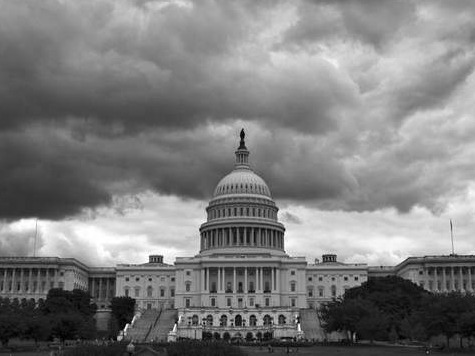
House Majority Leader Eric Cantor’s shocking loss in his primary last week left many observers wondering if the fallout would spark a GOP leadership shuffle. Cantor’s opponent, econ professor Dave Brat, with a shoe-string budget and zero support from national tea party “organizations,” ran a classic grassroots campaign and bested the powerful incumbent by more than ten points. With an increased turnout from two years ago, the result had all the markings of a real voter revolt.
Within hours of Cantor’s defeat, though, the House GOP caucus rallied around his deputy, House Whip Kevin McCarthy, to replace him as number two in leadership. Rather than reflect on whether Cantor’s loss signaled a larger issue, Republicans circled the wagons to preserve the status quo.
This is a bit like Lincoln replacing McClellan with the general’s less-accomplished twin brother.
Ever since the 17th century tulip mania in Holland, economic prognosticators have worried about financial bubbles. In these situations, the valuations of assets or commodities are pushed higher than economic logic would dictate. As the recent 2008 housing and credit collapse revealed, these events never end well.
Whether or not we are in another Fed-induced financial bubble is a question for economic history. It seems clear, in any event, that DC is experiencing a political bubble. Incumbents and strategists of both parties are completely out of touch with the concerns of average Americans. The public seems increasingly aware that the nation is facing intractable challenges. In response, Republicans and Democrats offer pablum, wired and duct-taped together to get past another election cycle.
Unfortunately, the biggest worry gripping DC in response to the Cantor loss is how his departure will impact Wall Street and big banks, who were strong allies of the Majority Leader. There is even worry that, without Cantor, the crony capitalist Export-Import Bank, which gives government-backed financing to major corporations, may expire. Oh, the horror.
There is perhaps no better example of how out-of-touch DC is with the rest of America than the following tweet from senior GOP “strategist” John Feehery, in reaction to MS Sen. Thad Cochran being forced into a run-off.
The notion that voters should support a politician solely on the ability to extract more money out of the Treasury is precisely how a nation accumulates a $17 trillion debt. This rather petulent sentiment, mind you, comes from a Republican.
Last week, the National Republican Senatorial Committee hosted a fundraiser for Sen. Cochran’s run-off which brought over $800,000 into the embattled politician’s campaign coffers from various corporations and DC interests. This money isn’t to finance a fight against a Democrat, but against a fellow Republican who bested 40-year incumbent Cochran in the initial primary balloting. Cochran’s campaign is also banking on support from anti-gun Michael Bloomberg and Facebook co-founder and left-wing donor Sean Parker.
Making the short drive into DC from my home, I can count half-a-dozen construction cranes. There are at least four major housing developments within a mile of my house. Living in DC, one can easily miss the economic anxiety felt by people outside the beltway.
Eric Cantor’s campaign famously spent more money at DC steakhouses than his challenger Brat spent on his entire campaign. It is a funny stat, but there is a more telling anecdote. On primary election day, Cantor was in DC, 90 miles away from his district, huddling with lobbyists and fundraisers at a Starbucks on Capitol Hill.
The National Journal‘s Ron Fournier, one of the few generally interesting reporters in DC, perfectly summarized what DC ought to learn from Cantor’s loss.
Let this be the lesson taken from Cantor’s loss. He is not the only political leader to lose touch with voters. In fact, according to every indication, the entire political class has lost touch. There is ample polling to suggest that a majority of Americans voters don’t feel rooted in, or represented by, either the Republican or Democratic parties. Change or lose power, folks.
Bubbles don’t last. As the great economist Herb Stein said, roughly, that which can’t go on, stops. DC can’t forever stay out-of-touch with the public. The bubble will burst.

COMMENTS
Please let us know if you're having issues with commenting.